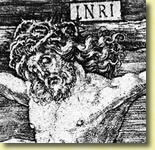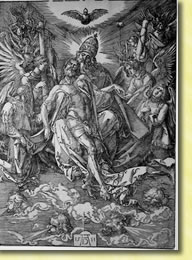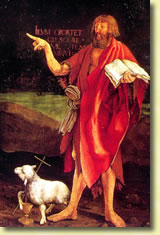Joshua 24: 1-2,14-25
Ephesians 5:15-20
John 6:60-69
 We find something rather odd when we look at the passage from Joshua in this morning’s lectionary readings. In this passage, Joshua has gathered all the tribes together at a place called Shechem, and Joshua is renewing the covenant that God made with Israel at Mount Sinai, when Moses had led Israel out of Egypt into the desert. At the beginning of the passage (much of which we did not read this morning), Joshua recounts the story of God’s dealings with Israel’s ancestors—Abraham, Isaac, and Jacob. He tells of Moses and the deliverance from slavery in Egypt, and he tells of how God has given Israel a new land to dwell in. Joshua then commands the people: “Now therefore fear the Lord and serve him in sincerity and in faithfulness. Put away the gods that your fathers served beyond the River and in Egypt, and serve the Lord.” (Joshua 24:14)
We find something rather odd when we look at the passage from Joshua in this morning’s lectionary readings. In this passage, Joshua has gathered all the tribes together at a place called Shechem, and Joshua is renewing the covenant that God made with Israel at Mount Sinai, when Moses had led Israel out of Egypt into the desert. At the beginning of the passage (much of which we did not read this morning), Joshua recounts the story of God’s dealings with Israel’s ancestors—Abraham, Isaac, and Jacob. He tells of Moses and the deliverance from slavery in Egypt, and he tells of how God has given Israel a new land to dwell in. Joshua then commands the people: “Now therefore fear the Lord and serve him in sincerity and in faithfulness. Put away the gods that your fathers served beyond the River and in Egypt, and serve the Lord.” (Joshua 24:14)
Now here comes the strange part. Joshua gives the people a choice. “And if it is evil in your eyes to serve the Lord, choose this day whom you will serve, whether the gods your fathers served in the region beyond the River, or the gods of the Amorites in whose land you dwell. But as for me and my house, we will serve the Lord.” (v. 15) Israel is given a choice between serving the gods of the land in which they used to live or the gods of the new land in which they now live. Or they can serve the Lord.
In ancient societies, gods tended to be attached to the land in which they were worshiped. So the gods worshiped in Egypt are the gods of Egypt. The gods of the Amorites are the gods of the new land in which Israel dwells. But the biblical God is not a God bound to a particular place or land. He gives Israel a land, but he is not a God associated with a land, but with a history. He is the God who made a covenant with Israel’s ancestors, and who delivered Israel from slavery before they had a land. This is a God who makes covenants with his people, and a covenant involves a choice. One actually has to make a decision to worship such a God. And so, here is the odd part. Israel’s God is a God who can be rejected.












